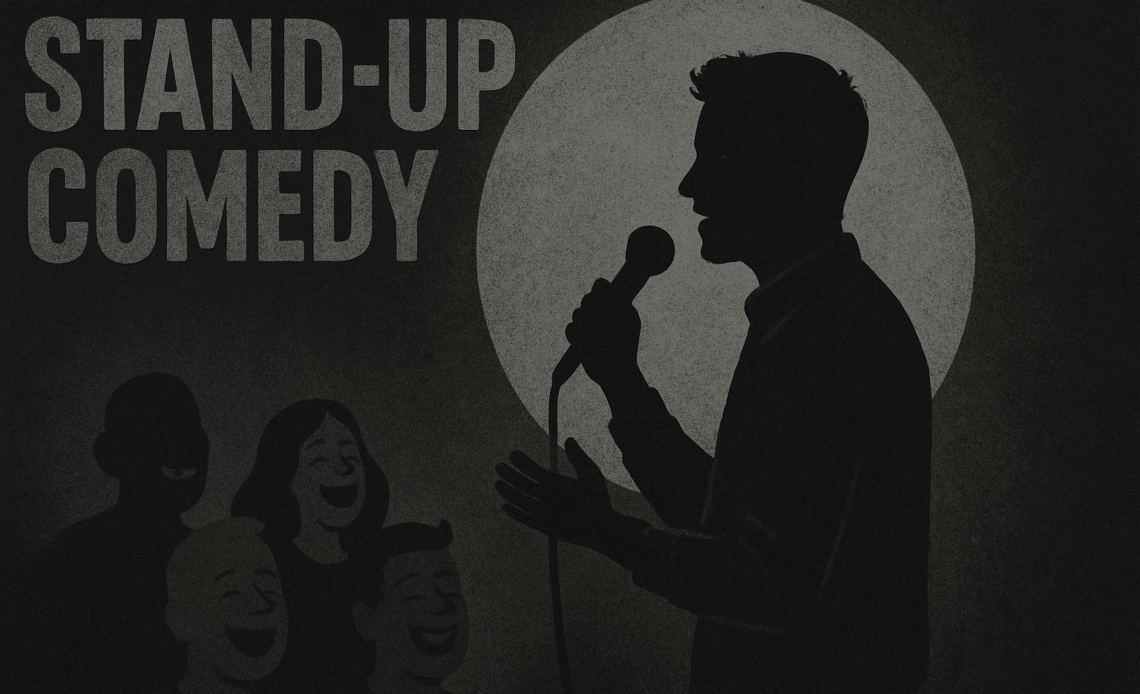
What is Stand-Up Comedy?
In recent years, stand-up comedy has emerged as one of the most popular and beloved art forms across the globe. Audiences have started preferring a stand-up show over a full-fledged feature film with a budget of hundreds of millions of dollars.
Stand-up comedy is a Western art form that rose to prominence in the 20th century and has been gaining popularity ever since. It’s a unique way of telling people things they already know—or want to know—but through a light and cheerful medium called a joke. Some say stand-up comedy is a tough art form that can’t be learned, which might be true to an extent. But to be honest, there is no fixed formula to becoming a comedian. It’s an art form that stems from the natural wittiness of a person who has something to say.
Comedians are not just taking over stages—they’re making an impact on society through the power of their words, jokes, thoughts, and unique perspectives. A comedian needs to “have something to say.” Being a comedian is not only about writing and delivering jokes; it’s about having a point of view. Whatever you’re saying on stage, it needs to mean something.

Why Should You Pursue It?
We all have that friend who says, “Bro, you’re so funny, why don’t you try stand-up?” or “If you think you’re that funny, why don’t you do comedy?” That, my friend, is the moment many of us fall into the trap. Frankly speaking, never pursue any art form—including stand-up comedy—just because someone pokes or provokes you into it.
You must have a natural wit within you, a kind of comedian’s “peter tingle” (like Spiderman had). You hear something and instantly come up with a funny comeback. Someone says something silly, and your mind races to respond hilariously. That’s when you know it’s time to stop hesitating. But let me be clear—this doesn’t give you the right to insult or belittle others. A good professional comedian always understands the thin line between humor and harm and stays well within it.
We all see kids playing with their grandparents in the park and think it’s a cute sight. But only a comedian might look at it differently: two different generations, tied together by something called love, struggling to keep up with each other. The grandparent just wants to take their medicine and nap, while the kid wants to run around with someone who can at least match their speed. (That could be one way to look at it—don’t judge me, I’m just typing this at 2 AM.)
So, my friend, the only crux is: if you feel that “comic tingle,” don’t wait—start today.
How Can You Begin Your Stand-Up Journey?

The journey starts at your study table—yes, right there. That’s where you’ll sit down and write your first bit. It might turn out to be garbage, and that’s okay. Don’t be harsh on yourself. Keep writing. You can’t become a great comedian overnight. This art demands hard work, countless hours of writing, rewriting, and relentless practice at open mics.
Yes, you heard that right—“Open mics” will be your new temple. As a comedian, your religion is comedy, and open mics are the places where you worship. Open mics are small, often free-to-attend shows where new and seasoned comedians test their material. The audience usually doesn’t pay, but they get to witness possibly the best—or sometimes the worst—comedy performance of their life.
In my experience, 75–80% of new comics bomb on stage. Some forget their lines, start sweating, get dry lips, or freeze mid-sentence. I remember this one guy who got so nervous that he cried on stage. Cut to six months later—he was doing 15-minute sets and absolutely killing it. You know what he never did? He never gave up. He kept attending open mics, kept writing and rewriting, and kept improving both his craft and his confidence.
Start now—write your thoughts, turn them into jokes, find a nearby open mic, and get on stage. Stage fear is normal. Forgetting your jokes is normal. That’s all part of the process. Trust the process and you will make it.
Newcomers usually get less stage time than experienced comics, which makes sense. There’s a live audience that expects entertainment. That’s why open mics are designed to feature new comics alongside seasoned performers—to keep the audience engaged while giving fresh talent a chance.
As you improve at open mics, you’ll naturally be upgraded to longer sets. Eventually, you’ll be added to lineups, get offered longer slots, maybe 30 or 45 minutes, and eventually even your own solo show. Recording and uploading a video comes later—right now, just focus on writing and performing.
Should I Do Stand-Up Comedy Full-Time?
Let me tell you something that might surprise you: stand-up comedy is one of the most luxurious art forms to pursue. It demands your time, energy, effort—and yes, money. That’s right, money.
You’ll often have to travel daily for open mics, and most clubs charge you a small fee to perform for just 5 minutes.
WHAAT?? PAY?? ARE YOU SERIOUS?? WHY WOULD I PAY TO PERFORM???
Here’s the thing: nobody will pay you initially, because you’re new, inexperienced, and untested. No audience wants to pay to see a comic with no track record. Think of it this way—would you pay full price at a pizza shop just to eat raw dough? No, right? That’s why clubs charge you. In return, you get professional infrastructure, a stage, a mic, lights, and a live audience.

So should you pursue stand-up comedy full-time?
Absolutely not—at least not in the beginning. Unless you’re consistently selling 200+ tickets every weekend, you won’t be able to make a sustainable living just from comedy. You must have a regular, high-paying job while pursuing stand-up as a hobby. Stick with your job until you’ve learned enough, built enough material (at least an hour), and gained real stage experience.
Until then, keep hustling. Write, rewrite, perform, bomb, repeat. That’s the real secret sauce.

